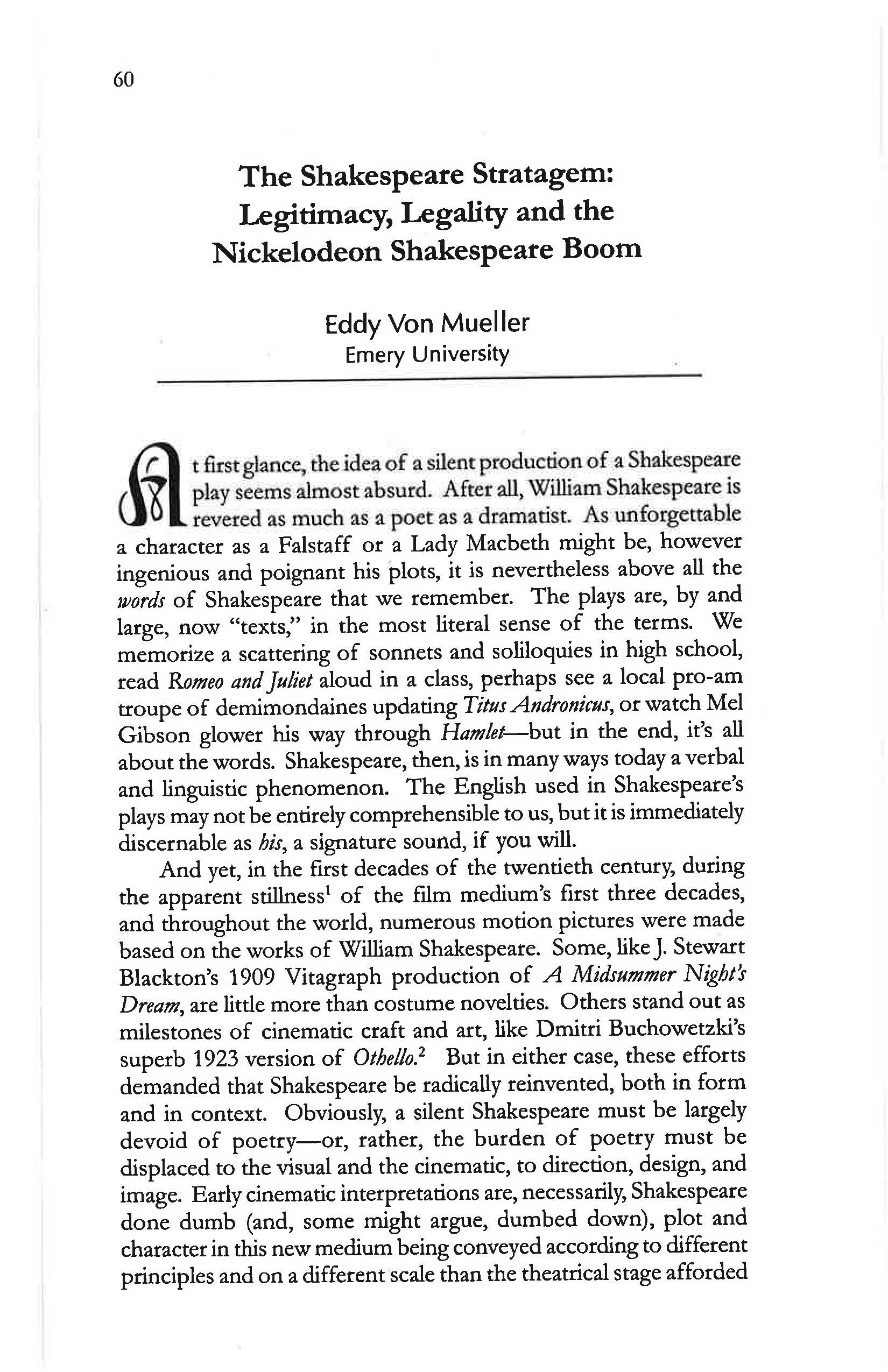The Shakespeare Stratagem: Legitimacy, Legality and the Nickelodeon Shakespeare Boom
Main Article Content
Abstract
At first glance, the idea of a silent production of a Shakespeare play seems almost absurd. After all, William Shakespeare is revered as much as a poet as dramatist. As unforgettable a character as a Falstaff or a Lady Macbeth might be, however ingenious and poignant his plots, it is nevertheless above all the words of Shakespeare that we remember. The plays are, by and large, now “texts,” in the most literal sense of the terms. We memorize a scattering of sonnets and soliloquies in high school, read Romeo and Juliet aloud in a class, perhaps see a local pro-am troupe of demimondaines updating Titus Andronicus, or watch Mel Gibson glower his way through Hamlet—but in the end, it’s all about the words. Shakespeare, then is in many ways today a verbal and linguistic phenomenon. The English used in Shakespeare’s plays may not be entirely comprehensible to us, but it is immediately discernable as his, a signature sound if you will.
